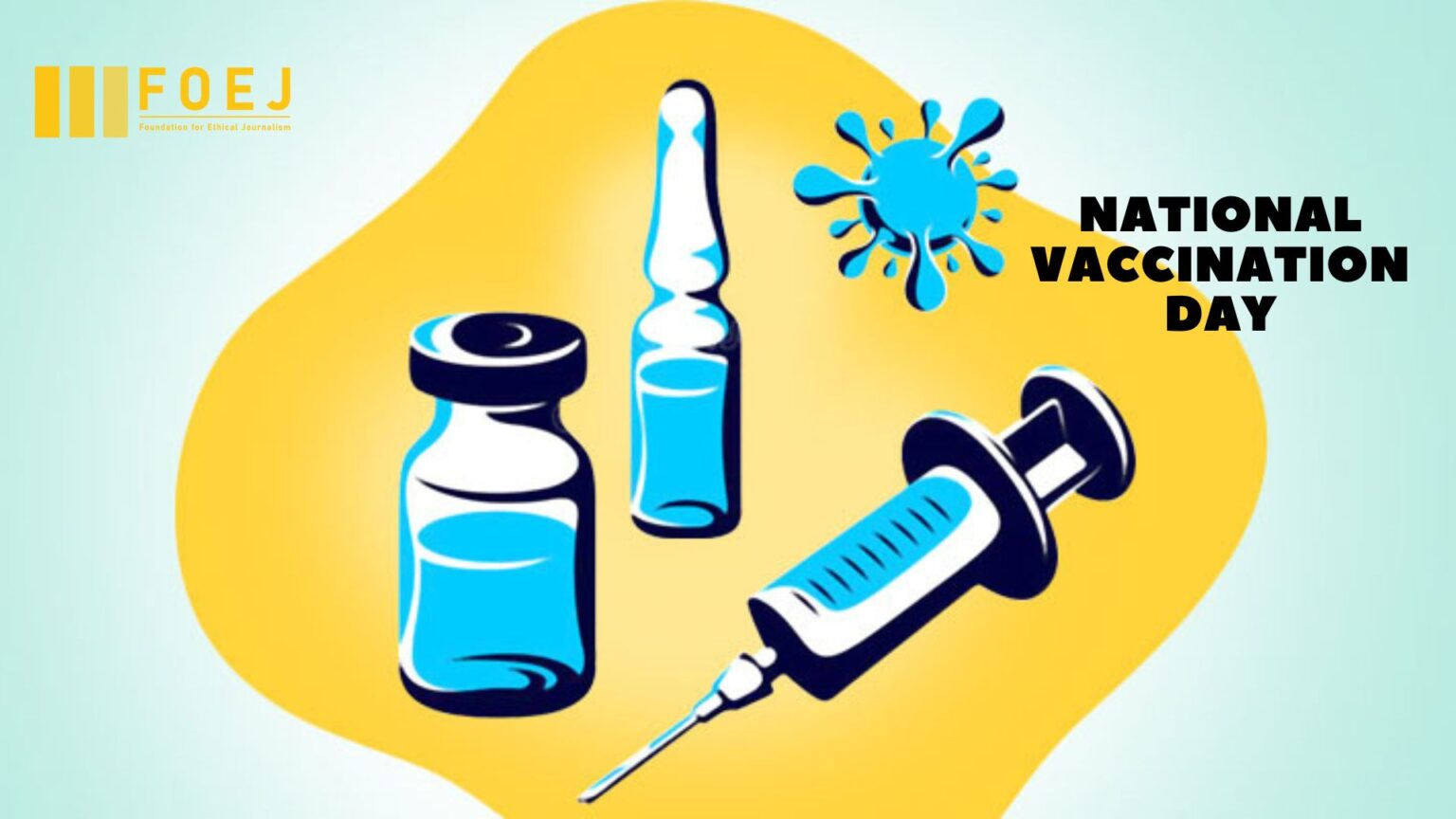India is celebrating National Vaccination Day on March 16th to commemorate the launch of the first dose of oral polio vaccine (OPV) in the country by Dr. Rajendra Prasad, the first President of India, on March 16th, 1955. This day is also known as ‘National Immunization Day’ (NID).
Children of age 0-5 years are administered two drops of the vaccine orally at public health centers. According to the World Health Organisation (WHO), the last Polio case was reported in West Bengal’s Howrah in 2011 and the WHO declared India Polio free on March 27, 2014.
The purpose of National Vaccination Day is to raise awareness about the importance of vaccination in preventing and eradicating diseases, and to encourage people to get vaccinated. It is a reminder that vaccination is one of the most effective ways to protect oneself and the community from infectious diseases.
In the present time, with the ongoing COVID-19 pandemic, the significance of vaccination has increased manifold. National Vaccination Day provides an opportunity to promote COVID-19 vaccination and encourage people to get vaccinated to protect themselves and others against the virus.
India is now moving towards the eradication of measles and rubella through the vaccination of over 324 million children through MR vaccination campaigns.
India recently witnessed how one vaccine helped almost every citizen of the country to become immune against Covid-19 even as more variants took over. Till date, 2,20,64,71,236 Covid vaccines have been administered in the country.
History of National Vaccination Day in India
The story of vaccination in India dates back to 1802, when British physician Edward Jenner discovered the first vaccine for smallpox. At that time, smallpox was a deadly disease that killed millions of people worldwide. In 1978, the World Health Organization (WHO) launched a global campaign to eradicate smallpox, which was successfully accomplished in 1980.
India played a crucial role in this global effort, as it had the highest burden of smallpox cases in the world. The Indian government launched a massive vaccination campaign to eliminate the disease, which involved vaccinating millions of people across the country. The campaign was successful, and India was declared smallpox-free in 1977.
After the eradication of smallpox, the Indian government focused on eliminating other vaccine-preventable diseases, such as polio. In 1985, the government launched the Universal Immunization Program (UIP), which aimed to provide free vaccines to all children under the age of five. The program was a major success, and by 2014, India had eliminated polio.
In recognition of India’s success in eliminating polio, the government declared March 16th as National Vaccination Day in 1995.
Theme:
Every year, the day is celebrated under a specific theme. In 2022, the theme was, ‘Vaccines Work For Everyone’. However, the theme for this year is not announced yet.









